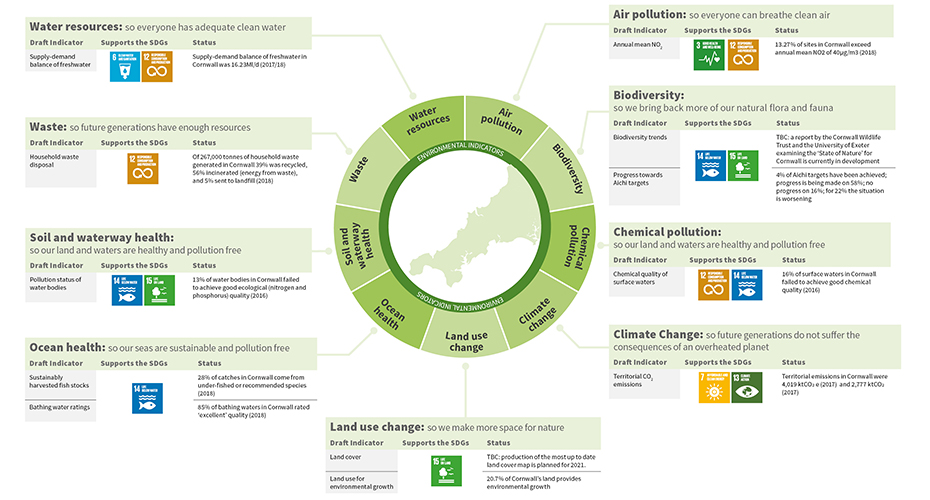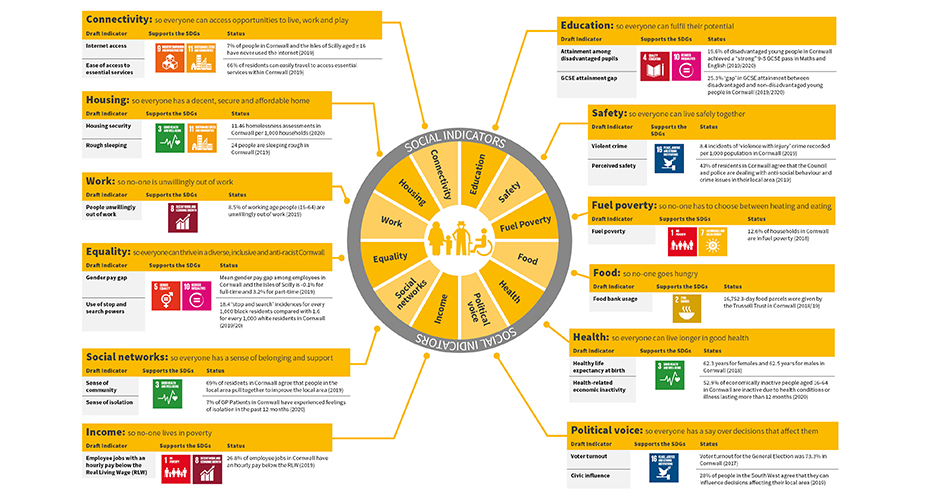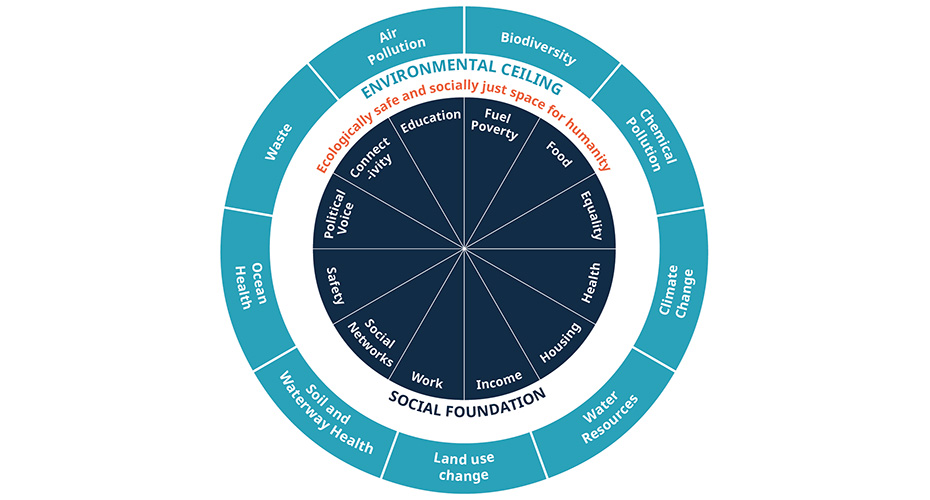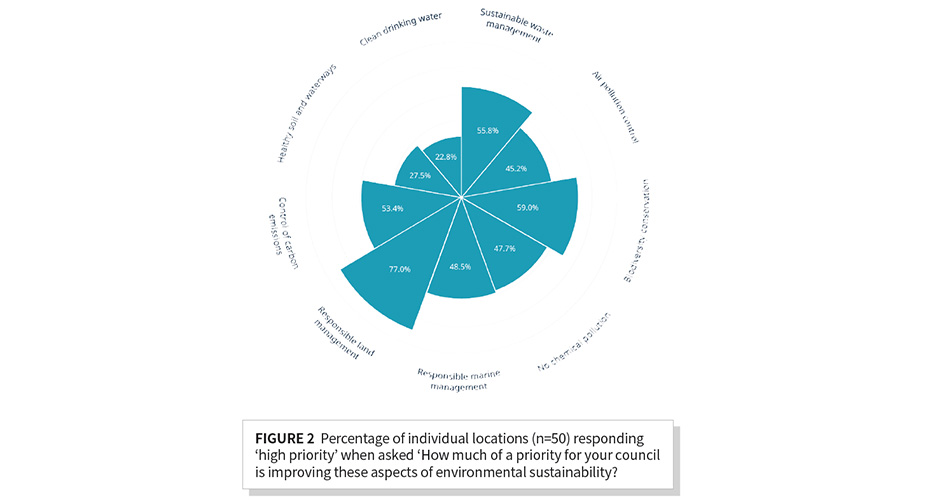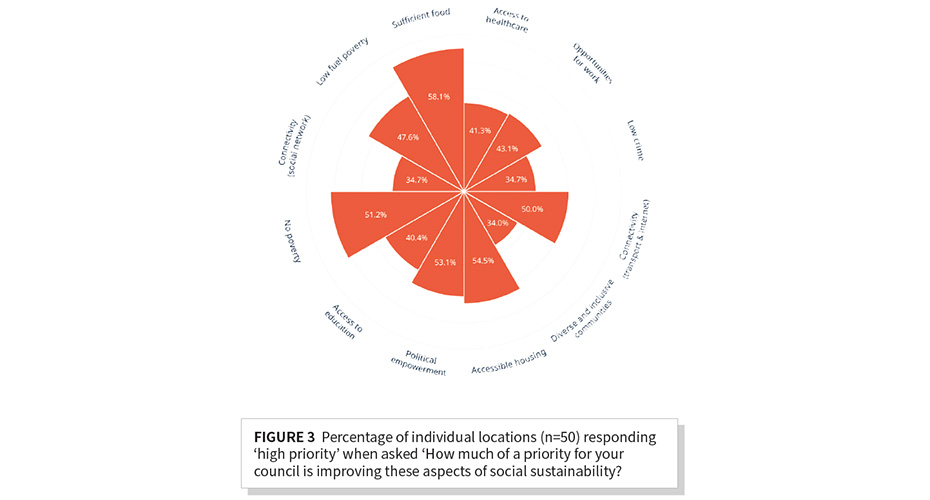Towards a Sustainable Economy: State of the Doughnut
Research overview:
The complex challenge of achieving sustainable development requires a new approach to decision-making, one that recognises the interconnections between social and environmental factors, accounting for people’s needs as well as the natural environment upon which they depend. The challenges of present-day issues such as social deprivation and climate change are rooted in inter-dependent systems that require innovative responses at multiple levels.
Key objectives:
Having already embarked on an ambitious agenda to pursue environmental sustainability, Cornwall Council has worked with a team of researchers from the ESI to use Kate Raworth’s ‘Doughnut Economics’ model to assess the current state of social and environmental conditions across Cornwall.
We have produced five reports that develop this work. The first outlined the ‘state of the doughnut in Cornwall’ (2020), the second looked at the uneven geography of challenges and opportunities within Cornwall (2021), and the third has explored how the leaders of Cornwall’s statutory services are working together to deliver the ambitious vision set out in the Cornwall Plan (2022).
In 2022, our team secured additional funding from the British Academy to support a workshop to engage civic and civil society leaders in determining a shared goal that could be supported across the community, in tandem with the statutory bodies represented on the Cornwall and Isles of Scilly Leadership Board (CIOSLB). This event was called ‘the Civic Lantern’ and the participants determined that their top goal was to ‘give land and support for every community to have a sustainable community growing scheme’. The process and outcomes are written up in our fourth report.
Following this, Lord Robin Teverson (leading on this area for the CIOSLB as Chair of the Local Nature Partnership) chaired a working group to find out more about community growing schemes in Cornwall. This group then published a summary report that highlighted the work already been done by community growing projects, and called for additional support with funding, skills and land. The report can be found on the Sustainable Food Cornwall website.
Impact:
Our first report provided a snapshot of the ‘state of the Doughnut’ in Cornwall that was used as a baseline from which to later evaluate progress towards achieving a social foundation that meets human needs while also reducing environmental pressures. The report identifies a set of indicators that can be regularly revisited to assess progress, providing a framework to chart progress over time. This framework now underpins The Cornwall Plan 2020-2050, committing key stakeholders to improve sustainability outcomes by 2050.
Our second report identified the extent to which sustainability challenges and priorities vary geographically. There are also considerable capacity challenges and barriers to action at the local scale that could be overcome by stronger partnership working. This research is shaping debate about how to stimulate stronger local responses to sustainability challenges in Cornwall.
Our third report contributed to the work Cornwall Council has done to review progress towards realising the vision of the Cornwall Plan. The first Annual Review was presented to the CIOS Leadership Board in March 2022. Alongside a new dashboard and progress report produced by the strategy team in the Council (https://letstalk.cornwall.gov.uk/cornwall-plan), we produced a report to explore the state of partnership working and identify next steps for the delivery of the Cornwall Plan.
Our fourth report, funded as part of a related British Academy funded project called ‘Localising and decentralising goal-based governance for sustainability’ documented the workshop to engage civic and civil society leaders. The process and outcomes of the Civic Lantern are documented in the short report available below.
The final phase of this work then focused on how to best support the top goal that emerged at the Civic Lantern, to ‘give land and support for every community to have a sustainable community growing scheme’. A series of recommendations about how best to do this are included in a report published in July 2023 and available via Sustainable Food Cornwall. The ambition is for this work to contribute to ongoing success and further development of community growing projects in Cornwall.

Cornwall already has high levels of inequality, and it’s important to think about the fair distribution of costs and benefits as we tackle environmental challenges. Increasing the scope for local decision making and leadership should allow communities to develop appropriate plans for change.
Dr Rachel Turner
Report 1
Towards a Sustainable Economy: State of the Doughnut.
Download the full report here.
Citation for this work:
Turner, R., Poznansky, F., Smirthwaite, N., Blundell, A., Benson, D., Gaston, K.J., Hamshar, J., Maclean, I., Wills, J. and Yan, X. (2020) Towards a Sustainable Cornwall: State of the Doughnut. Environment and Sustainability Institute, University of Exeter, UK.
Report 2
Sustainable Development in Cornwall: Local Perspectives on Challenges and Opportunities.
Download the summary report here and full report here.
Citation for this work:
Turner, R.A., Blundell, A., Collins, C., Exeter, O.M., Wills, J. (2021) Sustainable Development in Cornwall: Local Perspectives on Challenges and Opportunities. Environment and Sustainability Institute, University of Exeter, UK.
Report 3
Research into partnerships and collaborative working for the delivery of the Cornwall Plan.
Full report available here: Final Independent Annual Review 2022
Citation for this work:
Wills, J., Collins, C., Mukhopadhyay, R., and Turner, R. (2022). Annual Review of the Cornwall Plan (2021-2022). Research into partnerships and collaborative working for the delivery of the Cornwall Plan. Environment and Sustainability Institute, University of Exeter, UK.
Report 4
Report from the Civic Lantern event.
Download the full report here
Citation for this work:
Collins, C., Honeybun-Arnolda, E., Turner, R and Wills, J (2022). A Civic Lantern to engage civic and civil society in goal-setting for sustainability in Cornwall: A research report. Environment and Sustainability Institute, University of Exeter, UK.
And additional policy summary of the British Academy project.
Download the full report here
Citation for this work:
Elliot Honeybun-Arnolda, Claire Collins, Rishika Mukhopadhyay, Rachel Turner and Jane Wills (2022) Localising and decentralising goal-based governance for sustainability in England: Policy summary. Environment and Sustainability Institute, University of Exeter, UK.
Report 5
Community Growing in Cornwall: The impact and potential of local sustainable food growing in Cornwall.
Available from Sustainable Food Cornwall
Related academic publications:
Downscaling doughnut economics for sustainability governance.
Open Access available here
Citation for this work:
Turner, R.A. and Wills, J., (2022) Downscaling doughnut economics for sustainability governance. Current Opinion in Environmental Sustainability, 56, p.101180.
Localising and democratising goal-based governance for sustainability
Open Access available here
Citation for this work:
Honeybun-Arnolda, E. Turner, R. Mukhopadhyay, R. Collins, C. and Wills, J. (2023) Localising and democratising goal-based governance for sustainability. Environmental Science and Policy,151 p.103638.
For more information, please contact Dr Rachel Turner or Professor Jane Wills
A collaborative project funded by the UKRI Strategic Priorities Fund.
Funded via the British Academy’s programme entitled Shared understandings of a sustainable future, 2022.

